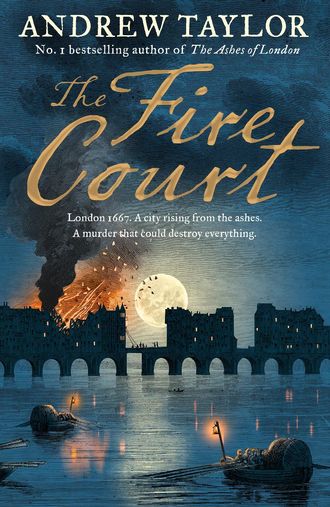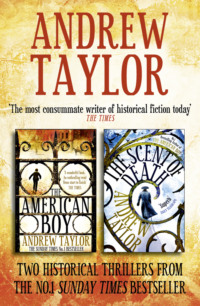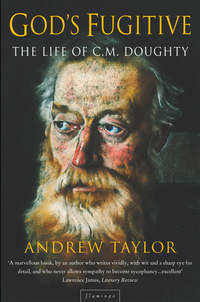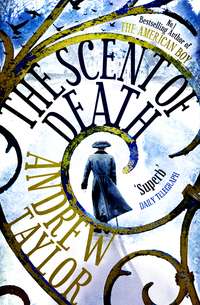
Полная версия
The Fire Court: A gripping historical thriller from the bestselling author of The Ashes of London
In the dining room, the gentlemen rose and bowed as she entered, and Richard moved forward at once to help her. Richard was Philip’s servant, brought with him from his other life before their marriage. He wore his livery and had his teeth in, so he made a respectable show. Mary said he hated to wear his teeth because they hurt his gums.
Jemima curtsied to the gentlemen and allowed herself to be assisted to her chair.
‘My wife has not been well these last few days,’ Philip said, ‘but she would not keep to her bed when she knew you would be dining with us, Sir Thomas. And our old friend Gromwell too.’
‘What a charming diamond,’ Gromwell said, staring admiringly but respectfully in the direction of Jemima’s bosom. For all her dislike of him, she was forced to concede that he was a tall, fine-looking gentleman. He had once known great prosperity but his fortunes were now much reduced. ‘My Lady Castlemaine was wearing one that was very like, only the other day, but it wasn’t nearly so fine. Smaller, too.’
‘It was my mother’s,’ Jemima said coolly, impervious to his attempt to charm her. The last time they had met, at Clifford’s Inn, his charm had been in short supply.
‘Quite outstanding,’ he murmured, leaving it discreetly ambiguous whether the compliment referred to her diamond or her bosom.
Sir Thomas cleared his throat and ventured into a complex and finely nuanced expression of opinion, which, though initially obscure, seemed to suggest that in this case the wearer adorned the diamond, rather than the other way round.
Philip smiled down the table at her, his brown eyes soft and adoring. It was a smile designed to melt the heart and during their courtship it had melted hers, against her better judgement. ‘Lucius is right, my love,’ he said, ‘and Sir Thomas too – you look very well today, better than ever perhaps, if that can be possible.’
‘How can one improve upon perfection?’ Gromwell enquired; his manners were courtly though, like his yellow suit, they were a trifle old-fashioned. ‘But my lady has. Behold, a double miracle, a miracle of both nature and logic.’
‘You are pleased to jest, sir,’ she said automatically, and twitched her lips into what could pass as a smile.
‘I never jest on sacred matters, madam.’
You parasite, she thought, and smiled and nodded her head while the gentlemen laughed and toasted her. Duty done, they went back to their conversation.
‘I had no idea you would be sitting on the Dragon Yard petition,’ Philip said to Sir Thomas. ‘What a coincidence.’ As Jemima knew to her cost, he had the knack of speaking the clumsiest, crudest lie with such assurance that it became a self-evident truth. ‘It is so truly admirable that you judges sit for love of country, and for the city, and not for gold. You will be a pattern for future generations.’ He raised his glass. ‘A toast. Good health and prosperity to our Fire Court judges.’
They drank solemnly, and Hester came to the door with the guinea fowl, now dressed for table in their sauce. Jemima tasted a morsel and found the dish perfectly cooked, which pleased her, for she had pride in the food served at her table, as in other matters that belonged to her.
‘I sometimes attend these hearings myself, sir,’ Gromwell said. ‘Not that I have a pecuniary interest in them, you understand, but for the sheer quality of the judgements.’
‘You’re a lawyer, sir?’ Sir Thomas asked. ‘I don’t think I’ve had the pleasure of seeing you in court.’
‘I’ve never practised, sir. As a young man, however, I passed many profitable hours in the study of the law, and I believe I retain the ability to appreciate a well-argued case’ – he bowed towards Sir Thomas – ‘and a well-considered verdict.’
The gentlemen ate, and drank, and drank again. The room grew warmer. Sir Thomas was obliged to retire behind the screen to relieve himself. Jemima wanted to laugh at them, at their mockery of good fellowship, but instead she picked at her food and smiled at the compliments which were thrown her way like scraps to the bitch under the table; occasionally, as a well-bred hostess should, she threw in the sort of question designed less to elicit information than to allow the hearer to shine in his answer. But she said nothing to Gromwell.
Later – half an hour? an hour? – the conversation returned to the subject of the Fire Court. ‘It is not a court of law,’ Sir Thomas was saying, apparently to herself, ‘though our judgements have the force of law, and have the ability to override such things that are usually considered sacrosanct. Leases, for example, and contracts relating to property.’
‘And if I understand you correctly, sir,’ Gromwell put in with the air of an eager student, ‘your judgements do not set a precedent, but apply only to the petition under consideration.’
‘Precisely.’ Sir Thomas nodded vigorously and held out his glass for more. ‘You have understood me perfectly, sir.’ He beamed at Gromwell. ‘If I may say so, it is the law’s loss that you decided to apply your energies in other fields of knowledge. Our powers are intended simply to help London return to its former glory as soon as possible, for the good of the City and the Kingdom as a whole.’ He hammered his fist on the table. ‘And indeed the world. For does not our trade encircle the entire globe and enrich all it touches?’
This led to another toast, after which Philip said, smiling, ‘And if all goes well, sir, with the wise help of the judges, we shall do more than restore London. We shall increase its glories for centuries to come.’
‘I suppose Dragon Yard will be a case in point,’ Gromwell said. ‘Eh, Philip? If the decision next week goes in your favour, that is.’
Here we are, Jemima thought, we have come at last to the point of this tedious meal.
Gromwell turned to the judge. ‘I’ve studied the plans. It’s a most noble development, sir, with houses of the first class, laid out and built in a way that will make them proof against future fires. Safe, commodious and an ornament to the City. And also to the benefit of the public and of trade, I understand. It will provide another way to Cheapside, thereby easing the congestion of traffic there.’
Twisden’s face became serious; he looked like a flushed owl. ‘No doubt, sir, no doubt. Though all that would require considerable investment.’
‘We must not weary Sir Thomas with talk of business.’ Philip smiled round the table. ‘Would you care for a hand or two of cards, sir?’
The judge brightened. ‘If her ladyship would not object. And Gromwell too, of course.’
‘I should like it above everything,’ Gromwell said, smiling. ‘What would you say to lanterloo? And perhaps a shilling or two on the outcome?’
‘Why not? It adds a certain spice, does it not?’
‘I think, sir,’ Jemima said, ‘if you would not object, and if Sir Thomas and Mr Gromwell would not think me discourteous, I shall leave you to your play.’
‘Of course they will excuse you, my love,’ Philip said. ‘You are not fully yourself yet, and you must not overtire yourself. We can play with three as well as four. Richard? Send for Mary to help her mistress upstairs.’
A moment or two later, she withdrew. Sir Thomas bowed so deeply he stumbled against a chair and almost fell.
‘All well, my lady?’ Mary said softly as they climbed the stairs.
‘Well enough.’
Jemima was tempted to add ‘for your master’, but held her peace. She would lay good money that Philip would have known beforehand of Twisden’s taste for lanterloo, and that he would have arranged with Gromwell for the judge to win a pound or two from each of them.
When he was courting her, Sir Philip Limbury had seemed a creature of impulse, and his love for her had seemed as open and sincere as the sun itself. After their marriage, however, it had not taken her long to learn that he did little or nothing by chance. There was a purpose in almost everything he said and did. Sometimes more than one purpose.
When she was back in her chair by the window, and the chamber door was closed, she called Mary to her. ‘The other matter. There’s nothing? You’re sure?’
‘Yes, my lady.’
‘The servants will know. They always do. Richard? Hal?’
‘Hal Coachman would blab, madam. Richard, maybe.’
Jemima looked up at Mary. ‘Talk to Richard. See if he will let slip anything about Thursday.’
‘That one gives nothing for nothing, madam. He serves the master and himself. No one else.’
Jemima ran her tongue over her lips. ‘Then make him desire you. See if that will open his toothless mouth. I must know who the woman was.’
Mary stared down at her mistress. ‘Are you sure you want me to …?’
Jemima stared back. ‘Yes.’
CHAPTER TEN
After dinner at the Lamb, I went to collect a small debt I was owed by a man I had helped to find a job distributing the London Gazette. He lived in Leadenhall Street, on the opposite side of the road from the market, in the small part of the walled City that had survived the Fire.
When I had the money, I turned to my right and walked west towards what was left of Cornhill. The streets through the ruins were almost entirely clear now, and much of the ground on either side was parcelled out into building sites. In the meantime, in this hiatus of the City’s life, weeds were colonizing the rubble and making wild gardens in lost corners.
At this time of day the ruins were safe enough, clothed with a fragile, provisional normality. After sunset, everything changed among the ruins, and only fools ventured into the burned areas of the city without lights and protection. Now, however, there were workmen labouring among the shattered buildings, preparing for the City’s resurrection. Citizens hurried to and fro, going about their business, as they had in these streets for centuries past and no doubt would for centuries to come. Street-sellers plied their trade, for everyone needed something, and the urge to buy and sell was as tenacious as life itself.
Beggars stood and sat at every corner, straining to clutch the sleeves of passers-by, many claiming to be former householders who had lost everything to the Fire. Here and there, faded notices appealed for the missing. In Poultry I paused to read a weathered slate on which someone had scratched in faded, just legible capitals: MARY COME TO MOORFIELDS WEST SIDE PRAY GOD YOU ARE ALIVE. There was still a scattering of tents and sheds in Moorfields, though far fewer than there had been. Most of the refugees had melted away like snow in spring: a few remained, huddled in smaller, unofficial encampments; others had found lodgings in the houses of families and friends; and many had drifted away in the hope of making new lives in other parts of the kingdom.
I followed the road to Poultry and Cheapside, where some householders had already begun to rebuild their houses in defiance of the regulations and had set up stalls in the ruins of their homes. From the stone carcase of St Paul’s Cathedral I went west through the blackened arch of Ludgate and down to the bridge over the Fleet Ditch. In Fleet Street itself, I paused by the stalls that clung like chicks to a mother hen to the south side of St Dunstan-in-the-West.
At that moment, a wave of grief overwhelmed me. It took me entirely unawares. I stumbled, and steadied myself on the side of one of the bookstalls. My father had died here, only a few feet from where I stood, crushed under the wheels of a wagon. But I felt more than grief, more than guilt. There was also a hard edge of anger that cut into me like a blade.
It was the ant that had tipped the balance. That tiny creature, entombed in white paint, had finally convinced me that there had been sense in my father’s story, the dreamlike account he had given me during our last conversation on the last evening of his life. Everything else had fallen into place: Clifford’s Inn, the lawyers, the brick building by a garden. But it was the ant that proved to me it had not been his waking dream.
If the ant had been real, and those other circumstances, then was it not probable that the rest of it was real too? In other words, that he had followed a woman who resembled my dead mother, at least from behind. And by the same token, did that mean his account of what had lain behind Mr Gromwell’s door was equally real?
To my amazement, I found myself believing that there really had been a luxurious chamber where there was now a scholar’s study. The bright carpet, the sinful picture and the wanton woman on the couch had been as real as this stall beside me, as real as the battered, damp-stained and fire- damaged volumes it offered for sale.
The wanton woman whose blood was probably on his cuff, and on the scrap of paper in my pocket. The dead woman whose eyes he had closed. There was no other conclusion.
‘Sir,’ said a deep voice at the level of my elbow, ‘I believe I have the pleasure of addressing Mr Marwood? I am indeed fortunate.’
I started. Immediately in front of me was a large black hat. Its broad rim tipped backwards, revealing a small nose set in a broad face, red as the evening sun, and two blue, bloodshot eyes looking up at me.
‘Good day, Mr Chelling,’ I said. ‘Forgive me, sir, I was wool-gathering.’
‘You are come from Whitehall, no doubt. Is there … is there perhaps news from the King?’
‘Not yet, sir. In fact, I have not been there this afternoon.’
‘When you do, you will remember our conversation?’ Chelling put down the book he had been examining and took my sleeve. ‘About the Fire Court, and our difficulties with our bills? Not to mention with the authorities at the Inn.’
‘Of course.’ It occurred to me that this could be a fortunate encounter. If I could persuade Chelling to tell me what I needed to find out, it would remove the need for me to ask for Hakesby’s help – and, in return, to make him a loan that would leave me almost penniless. ‘Perhaps you would care to drink the King’s health with me?’ I said. ‘We might step over the way into the Devil.’
‘By all means, sir.’
Chelling bowed, which was not a success as he chanced to put his back foot on an uneven stone, which made him stumble. I caught his arm and steadied him. We crossed the road together with some difficulty, partly because of the traffic and partly because he was tottering along on two-inch heels. At the Devil, we went upstairs to the taproom. I ordered wine and found us a space at the end of a table at the back. The room was noisy – four law students were raising their voices in a ballad at the other end of the table, and two soldiers were arguing with passionate intensity about the disposition of the dragoons at an unnamed battle.
‘Have you known Mr Hakesby long?’ Chelling asked.
‘No, sir. Only since last year – the business at St Paul’s he mentioned.’
‘Of course – you told me earlier. What do you think of this so-called cousin of his, eh? Jane. Who did he say she was?’ Chelling stabbed his finger into my arm. ‘The sly old dog. Keeps him warm at night, I’ll be bound.’
I smiled politely. ‘It was civil of you to help me this morning,’ I said, trying to steer the conversation away from Catherine Lovett. ‘You mentioned this man Gromwell. I—’
‘Gromwell!’ Chelling burst out. ‘Always a maggot in his head about something. I cannot abide a man like that. We’ve all had our disappointments in life, but he bears his less gracefully than some I might mention.’
‘Have you known him long?’
‘Too long, sir. Far too long. I don’t want to be unchristian about any man, but I fear he gives himself airs, though with little justification. After all, we are both members. We are equals.’
‘Members …?’
‘Of Clifford’s Inn, sir.’ He paused as if to give time for me to digest the importance of this. ‘I was bred for the law, you see, though at present I assist them at the Fire Court. But I have lived in Clifford’s Inn for nigh on thirty years. Why, the Principal was good enough to say to me the other day that the place would be very much altered without me. But of course Gromwell is a Rule now, and by God he makes the most of it and carries himself very high with everyone. This business of the Fire Court is the perfect example. It’s not as if Staircase Thirteen is of any use to anyone else at – ah! Is that the wine?’
‘Staircase …?’
Chelling was watching the waiter. ‘Staircase Thirteen,’ he said absently. ‘I told you about it earlier. It’s not completely ruinous. The ground floor is perfectly weathertight, and the use of it would make it so much easier to store the Fire Court’s furniture and supplies and so on. As it is, we have to empty the hall when the court is not in session, so the Inn may have the use of it again. And that means – Dear Christ!’
The waiter was clumsy. The bottle tipped too far, and drops of wine spattered on the table.
‘Blockhead!’ Chelling snapped. ‘Numbskull!’
‘Beg pardon, masters, beg pardon.’ The waiter began to wipe the table.
‘Should we not drink His Majesty’s health at once, sir?’ Chelling said, seizing the bottle. ‘Loyalty to the throne demands no less. Allow me, sir.’
He poured the wine – hastily but without spilling a drop. We drank the King’s health, and then that of the other members of the royal family.
I set down my glass when we had drenched the monarchy in wine. ‘Are there many other gentlemen who are Rules?’
Chelling smiled, comfortably superior. ‘Clearly you were not bred to the legal profession,’ he said with a touch of pity. ‘In this Inn, there are twelve Rules under the Principal. Sometimes we call them the Ancients. They form the council that administers the affairs of the Society according to our statutes, as laid down by our honoured Founder.’
‘But your members are all lawyers, I take it – like those of the Temple, for example, or Lincoln’s Inn.’
‘The case is not quite identical, sir. We enjoy a different status. We are an Inn of Chancery, whereas such places as the Temple and Lincoln’s Inn are Inns of Court. In times past, our members were attorneys and solicitors who followed the Courts of the King’s Bench or Common Pleas. Or they were young gentlemen from the universities or from our grammar schools, who came here to gain a grounding in the law before moving to one of the Inns of Court. And it is the Rules who decide who shall enter our fellowship, and who shall be admitted to a set of chambers within the Inn. We—’
‘So Mr Gromwell is a lawyer?’ I cut in.
Chelling puffed out his cheeks. ‘I should hardly call him a lawyer.’ He paused to drink more wine. ‘One can hardly call him anything that’s worth the name. True, as a young man, he was admitted to the Society, so he may have some scraps of legal knowledge, but that’s all … He’s a man of fits and starts and idle fancies. He tried the law, and failed in that. He calls himself an antiquary, which means he fiddles about among dusty old papers and grubs about in ruined places and preys on the generosity of his friends.’
‘If he’s no lawyer, why is he here?’
‘A good question, sir.’ By now, Chelling was sweating profusely. ‘In the last fifty years, Clifford’s Inn has opened its doors to people our Founder would never have countenanced. Mr Gromwell’s uncle was once a Rule, and he spent a great deal of money refurbishing his chambers, as a result of which he was granted the right to bestow them on an additional life after his own. He chose to bestow them on his nephew.’
‘Number Three, on Staircase Fourteen.’
Chelling nodded but shot me a suspicious glance.
I said, ‘It seems most unjust, sir, that such a man should benefit by his uncle’s generosity, and in that way. And at the cost of others, too.’
‘Precisely.’ Chelling hammered his fist on the table, distracted from his suspicion. ‘One could hardly have come up with a less appropriate choice.’ He peered up at me, and wiped his brow with the trailing cuff of his shirt. ‘We live in terrible times. Since the great rebellion against his late majesty, nothing has gone right for this unhappy country. Or for Clifford’s Inn. We can’t get the students now. Not in the numbers we used to before the war. They go elsewhere. Before the war, I tell you, the Ancients would never have sunk so low as to elect a man like Mr Gromwell as a Rule. It beggars belief! He claims to have influence at court, but he has no more influence than’ – Chelling stamped hard on the floor – ‘than my shoe.’
During this last speech, Mr Chelling’s words had begun to take on a life of their own. They collided with one another. Consonants blurred, and vowels lengthened. Sentences proceeded by fits and starts.
My guest, I realized, was well on his way to becoming drunk on a mere bottle of wine. But perhaps this had not been the first bottle of the day. Or even the second. I doubted I would get anything useful about the Fire Court from him this afternoon. But at least he seemed happy enough to rant about Gromwell.
‘My father called at Mr Gromwell’s chambers last week,’ I said, attempting to seize control of the conversation before it was too late.
‘To see Gromwell? But why?’
‘He called there by mistake. I’m not sure that he saw Mr Gromwell at all.’
Chelling drained his glass and looked mournfully at the empty bottle. I raised my hand to the waiter.
‘Surely your father can inform you whether he did or not?’
‘Unfortunately he died on Friday.’
‘God bless us, sir!’ Chelling seemed to take in my suit of mourning for the first time. ‘How did it happen? It wasn’t plague, I hope, or—’
I shook my head. ‘An accident.’
‘The poor gentleman. We … we must drink to his memory.’
The second bottle came, and Chelling accepted a glass. His interest in my father had departed as rapidly as it had come, however, and we did not drink to my father’s memory. Instead, Chelling returned to the subject of Gromwell, and worried at it like a dog scratching a flea bite.
‘The trouble with Gromwell,’ he said, ‘is that he believes he’s a cut above the rest of us. He was born the heir of a fine estate in Gloucestershire. His father sent him up to Oxford but he frittered away his time and his money there. Then his father died, and the estate was found to be much embarrassed – every last acre mortgaged, I heard, and the land itself was in a poor state. To make matters worse, his brothers and sisters claimed their legacies by their father’s will, but there was no money left to pay them, so they all went to law against their brother. Gromwell is a fool, and fought them all the way rather than settle the business out of court. As a result he has nothing left but worthless old books and papers and a great heap of debts. I tell you frankly, sir, he has no more idea of how to manage his affairs than my laundrywoman.’
‘Then how does he afford to live?’
‘I told you: he’s a perfect parasite – he preys on his friends.’ Mr Chelling was still capable of relatively coherent thought, but his speech had now acquired an other-worldly quality, as if spoken with care by a foreigner who did not fully understand the meaning of the words or how to pronounce them. ‘Gentlemen he knew in his prosperity. He has friends at Court, and one of his schoolfellows is even a Groom of the Bedchamber. They say he’s quite a different man when he’s with them. Ha! No one could be more affable or obliging.’ He shrugged, a mighty convulsion of the upper body that almost dislodged him from the bench on which he sat. ‘He can make himself good company if he wishes, and he makes himself useful to them, too. He will find out their pedigrees for them, or keep them entertained with his conversation. In return, they lend him money and invite him to stay and lay a place for him at their tables. For all his airs, Lucius Gromwell is no more than a lapdog.’ Chelling glared at me and shook his fist. ‘Let him beware, that’s what I say. No man is invulnerable.’
‘That is very true, sir.’
‘Believe me, I shall make him laugh on the other side of his face before I’m done. I have the means to wound him.’
Chelling paused to take more wine. His face was very red and running with moisture.








